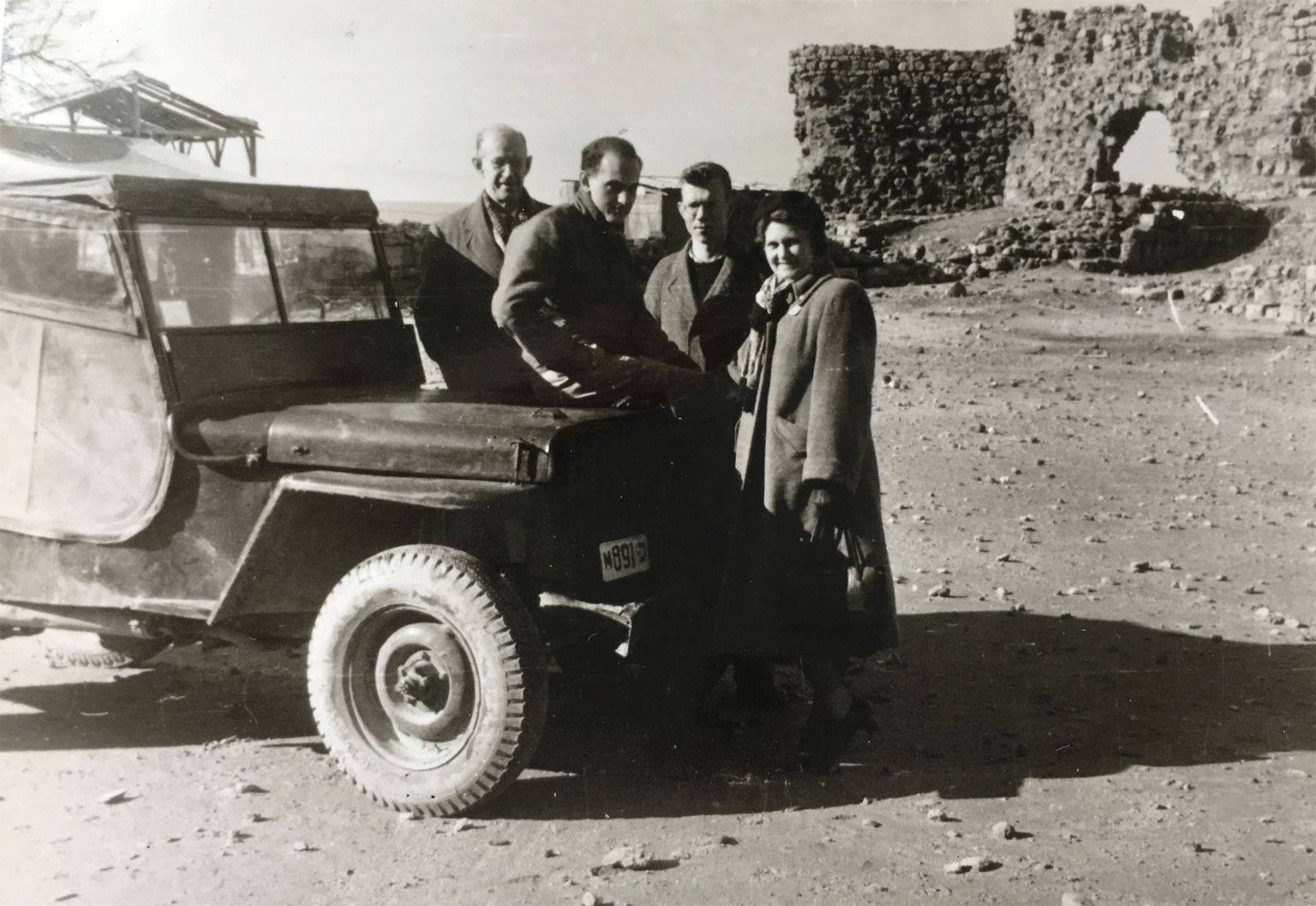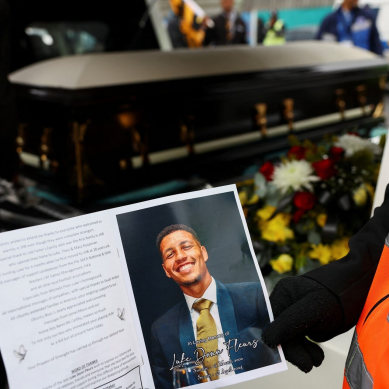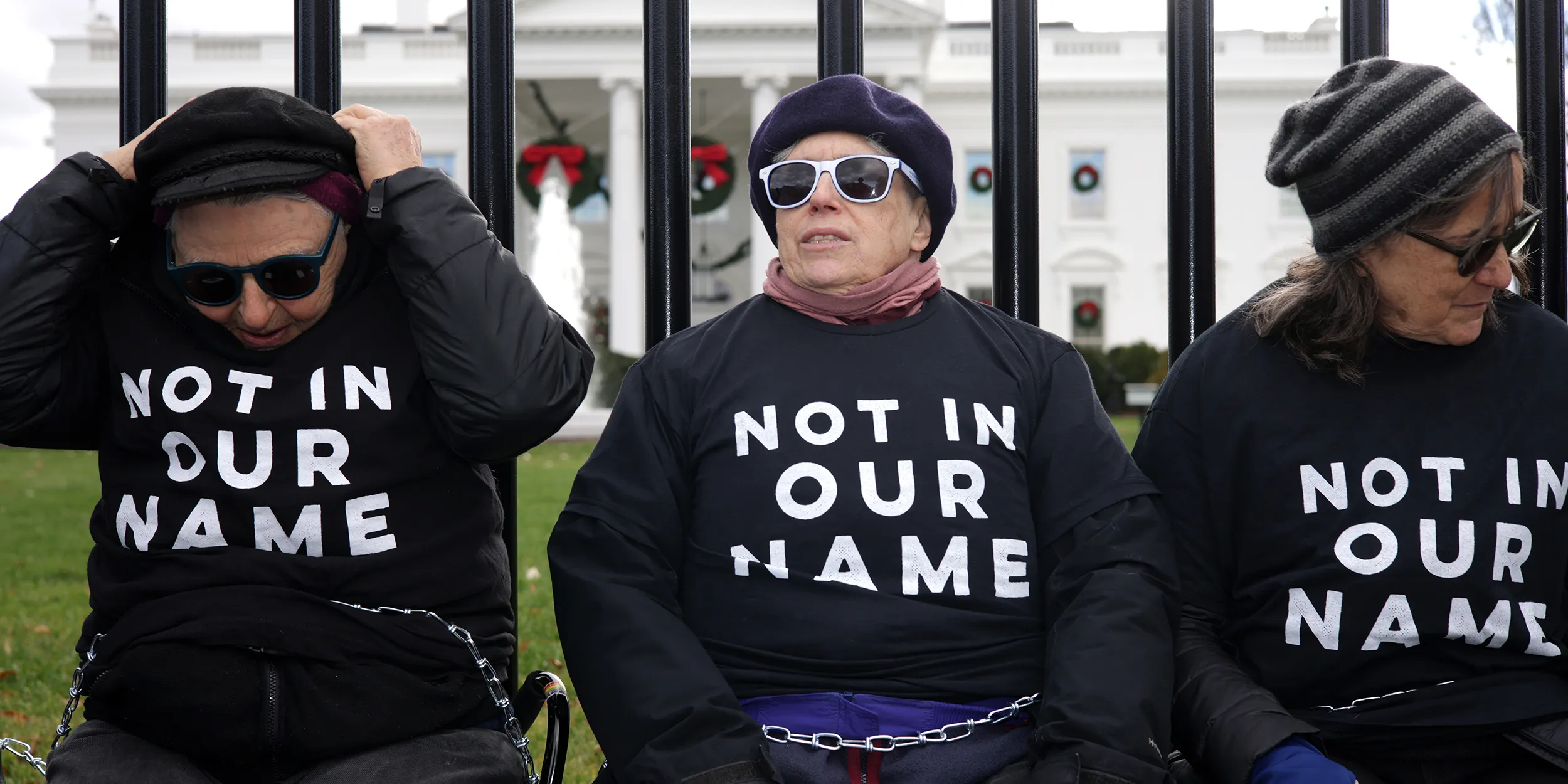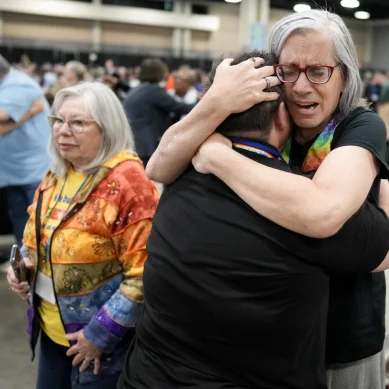
Even as the ubiquity of American Jewish support for Israel grew, Israel and its advocates began to push back not just on anti-Zionism, but even what would become widely known in the US as liberal Zionism. It was in this capacity that Wolf Blitzer, the CNN television host, became involved in the sorts of efforts Levin covers in Our Palestine Question.
Geoffrey Levin, a Emory University scholar, an explosive new book Our Palestine Question, discusses an incident from late 1976 where Blitzer, still a young reporter and Israeli government sources worked together to kneecap an American Jewish peace group called Breira: A Project of Concern in Diaspora-Israel Relations.
Breira means “alternative” in Hebrew. The group had first organised in 1973 to protest the hard-line Jewish organizational positions that emerged after the recent 1973 Arab-Israeli War.
Pro-Israel advocates in the US were taking on more right-wing visions of Zionism and reacted to the war by embracing the ideas that Zionist settlements in the occupied territories and ostracization of the Palestine Liberation Organisation were essential to Israel’s survival.
Instead, Breira wanted to provide the “alternative” and called for Israel to recognize Palestinians’ desire for nationhood; it was the first American Jewish group to advocate for a two-state solution. The New York Times editorialised in early 1976 that Breira was overcoming “the misapprehension of many Jewish Americans that criticism of Israeli policies would be seen as a rejection of Israel.”
Then Israel pushed back.
In November 1976, a handful of people who worked at several American Jewish organizations met secretly and as private individuals with moderate representatives of the PLO. Attendees were affiliated with the American Jewish Congress, American Jewish Committee, B’nai B’rith, the National Council of Jewish Women, and Breira. They would later insist that they had no wish to engage in diplomacy with the PLO, only informal dialogue to discuss peace-making.
One meeting took place in New York City; the other was in Washington. Afterward, some attendees wrote reports and sent copies for informational purposes to Israeli diplomats they knew personally. They trusted that the diplomats would not publicize the meetings.
At the time when the meetings occurred, Blitzer worked as Washington correspondent for the Jerusalem Post. His beat was reporting on how Middle East affairs played out in America, especially regarding Israel.
The Jerusalem Post, however, was not his only employer. Blitzer also worked for two publications that, in effect, were the house organs of the American Israel Public Affairs Committee or AIPAC.
Days after the Washington meeting, Blitzer wrote a hit job about the Washington meeting for the Jerusalem Post and named the American Jewish attendees. Based on details in his coverage and press that followed, attendees said it was clear that Blitzer had received a confidential report leaked by Israel. His piece quoted unnamed “Israeli officials” and an unnamed diplomat expressing “concern” about the meeting as part of novel “PLO propaganda tactics” with the aim of “the destruction of Israel.”
A firestorm ensued among American Jewish groups. All the organisations whose members had attended as individuals denounced the meetings – all, that is, except for Breira. Its continued defence of the gatherings prompted AIPAC to excoriate the group as “anti-Israel,” “pro-PLO,” and “self-hating Jews.”
Virtually no influential Jewish organisations publicly countered these denouncements. Breira’s national convention in 1977 was disrupted and vandalised by intruders who left leaflets supporting the vigilante far-right Jewish Defence League. The group lost membership and internal conflict led its major donor to withdraw funding.
By 1978, Breira had sputtered out. Thanks to an AIPAC-linked journalist and Israeli officials, another vein of American Jewish dissent about Israeli policies had been stripped.
Though Levin’s book was already in press months before the October 7 attacks, the mothballed history it airs has become since especially apt. If the Jewish community decades ago had known about Israel’s meddling, “you could have had a broader conversation,” he speculates, “which maybe would have led to less discomfort discussing difficult issues now.”
Levin added that “a lot of really bright people were pushed out of the mainstream American Jewish establishment” for discussing issues that have today been furiously rekindled. Would Jewish America’s Palestine question have stronger answers now if not for Israel’s underhanded attempts, years ago, to silence its US diaspora critics?
“You have to wonder,” Levin said, “what the American Jewish community would have looked like if it had welcomed some of these voices.”
- A Tell report











